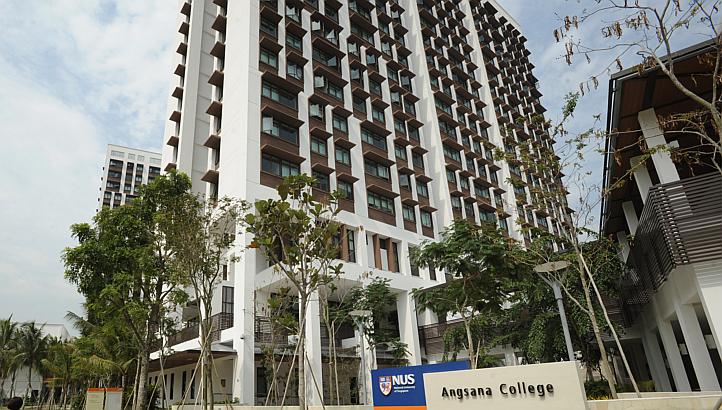
As the semester started, a press release announced the renaming of Angsana College to College of Alice and Peter Tan. The University had done so in recognition of a substantial donation from Mrs. Alice Tan to support financially needy students and academic programmes. This caused some disgruntled students to do what disgruntled college students do best: bay for an accounting of said offending action. They wanted to know what ‘Alice and Peter Tan’ had done to warrant the renaming of the building.
It is not uncommon for buildings in NUS to be named after donors or someone/something dear to a significant donor. In 2001, the NUS Law Library was renamed the C J Koh Law Library after Mr Koh Choon Joo. Naming buildings after people may also be a donor’s attempt to “leave a mark” in society after they have left this world. We leave this world where a majority of things are transient and many try to do so in a way that even after they have left, they continue to influence the living and live on in memories and history books. To some extent, we all want to be remembered, for our lives to have meant something and to know that it was not all for naught. We try to do this in so many different ways, being remembered prestigiously by the public or remembered simply by that special someone dear to us. We want to honor the memories of the ones who’ve gone on ahead of us and share their strength with the community. Will we begrudge those who wish to do so the chance to do so in their way? If we would, let us at least take the time to ponder why.
One reason is that we have differing yardsticks as to what would constitute ‘deserving’. In a world where many eschew saying there are absolute morals and values, we are thrown into confusion about deciding how and what to reward. There are those who feel that everyone ought to be equally recognized because they have all contributed and others who resent that they are not the ones being recognized. Another reason is that we hate to be reminded that we are in the charity of other people. “I don’t want your charity” is a common phrase that we hear and sometimes even ourselves proclaim. To have a building named after a contributor is a glaring reminder of our inadequacy and, for some, this pricks their pride rather painfully.
Yet, there is the nagging concern that NUS may be seen as “selling naming rights” and that NUS should not show preferential recognition to donors who make sizeable financial gifts. After all, as the parable of the poor old woman and her three coins teaches us, a smaller monetary donation may be of more value than a sizeable donation. There are those who clamor to know just how ‘substantial’ the gift was. They wish to somehow, from the amount given, judge how deserving the donor is to have a building renamed. How easily we judge from our ideals, refusing to see the realities and flaws of the systems in which we exist and how we contribute to them.
Given the spirit of goodwill associated with donations, it is not unreasonable to expect that each gift should be deserving of a similar level of gratitude and recognition. Similarly, I do not suspect that those who have given in a true spirit of altruism would lament about not having a building named after them. In an ideal world, donations stemming from pure intentions would flow in abundantly into whichever project is in need of aid. However, anyone who has worked for a non-profit and has had to raise funds knows that efforts must be made to ‘court’ donors with the means to contribute significantly to the project. It would be a sorry state if we were to grow into a society obsessed with commensurate compensation, where good intentions take a backseat and donors nitpick about receiving recognition befitting their gift. I am not saying that this was the case with the College of Alice and Peter Tan. What I am saying is that we need to look beyond our rose-tinted glasses. Framing philanthropy as being something deserving of recognition is unhealthy, for it reduces an act of goodwill into something that is merely transactional.
Ultimately though, while I certainly hope that organizations need to be cautious in their recognition of donors, and that the administration could have handled this case in a less high-handed manner (taking the time to seek the opinion of the residents of the college, for instance), the change in the college’s name does not affect the spirit of Angsana College. It ought to be no skin off our noses if the name is changed once. After all, as Shakespeare once wrote, “A rose by any other name would smell as sweet”.


